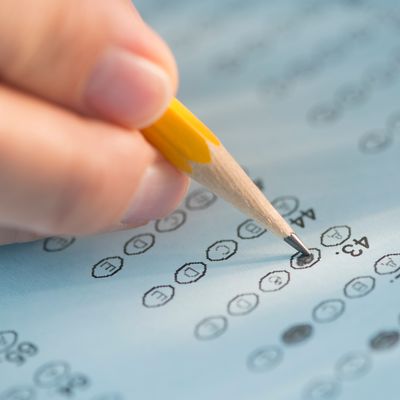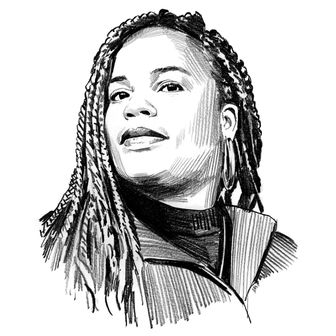
A few months ago, I was two hours into a date that I felt was going exceptionally well. We’d exchanged all of the standard getting-to-know-you questions with excellent results. We both enjoyed bike riding (admittedly, not a shocker in Brooklyn), were united in our distaste for veggies, and shared a love of junk food that would rival that of any teenager. The evening had entered phase “banter foreplay” when out of nowhere he asked, “So, what’s your Myers-Briggs personality type?”
He boasted that he was an INTJ (a rare MBTI profile most notably shared with Unabomber Ted Kaczynski, he confided) and was curious if I’d ever taken the test. I could only give some half-baked combination of letters based on a shaky memory of undergrad psych but in retrospect, I should have really responded with STFU.
When mother-daughter team Katharine Cook Briggs and Isabel Briggs Myers started expanding Carl Jung’s personality theories to create an identity typology in 1926, they saw it as a way to help people find happiness through a better understanding of themselves and their preferences. They took Jung’s idea that four key elements in our personalities (sensation, intuition, feeling, and thinking) determine how we experience the world and define everything from our interests and values to our needs and motivations.
Briggs’s approach was that of a hobbyist humanist; she saw their work as something like a quiz in a sophisticated teen magazine. She described it once as a “personality paintbox.” It was her daughter, Isabel, who decided the idea had a more practical application and developed the Myers-Briggs Type Indicator in the 1940s, with the intent to use it for career-placement purposes — a “What Color Is My Parachute?” for the postwar generation. The test caught on in the late 1970s and went on to become a favorite among avid online test takers, psych 101 classes, Fortune 500 company human-resource departments — even dog owners. (Yes. MBTI for pets is a thing.) And now in 2015, it’s found new life helping people efficiently determine whether they should date you.
Ken*, the date in question, revealed that his knowledge of the MBTI has really shaped how he approaches dating and relationships. He wouldn’t consider dating someone long-term if they weren’t a compatible sequence of letters. I nodded as he said this, pumped on how well I thought the date was going. This guy was really looking for someone he jammed with, and we were jamming. I put the Kaczynski thing out of my mind.
So I was shocked — shocked! — when he declined my invitation to a concert a few days later. I’d assumed that our shared love of Three 6 Mafia and road trips meant we’d at least have a second date, if not end up getting married, but Ken had a different vision. Apparently an ENFP (me) and an INTJ (him) could never work out, primarily because of the initial letters, to his mind. “TBH [this man and his letter sequences] I just don’t think we have a ton in common,” he texted. Where he was an I, I was an E and that was all he needed to pass on a happy lifetime of southern-rap-soundtracked cross-country drives.
I might have just been hypersensitive after my rejection by Ted Kaczynski’s psychological twin, but after our date I started noticing how frequently people list their MBTI on OKCupid and Tinder profiles. I messaged with ChiGuy66, a “shy midwesterner” whose profile revealed he enjoyed rock climbing and the National and was an ISFP. On Tinder, Jake, 29, 2.3 miles away, let me know that he was 6’2”, free tonight, down to fuck, and an ENTJ. All of a sudden I couldn’t escape it. WTF?
According to data from OKCupid, about 5 percent of users list their Myers-Briggs type on their profile. Within that group, the majority are men, who tend to be INTJ. For women who post their type, the most common is INFJ. It seems like a small percentage, but OKCupid’s data-crunchers assure me that it’s actually significant to have something new trending across so many profiles. It’s become enough of a “thing” that people have parody answers on their profile (e.g., MBTI: IDGAF). LOL. (Not really.)
Kaczynski-Ken did have a point. Post-rejection, his identification with the antisocial Unabomber began to explain some things. He’s emotionally reserved while I’m full of emotion. He’s introverted and doesn’t go out. I’m incredibly social and rarely home. If we’d continued on because we were sexually attracted to one another and both loved David Byrne, our relationship probably wouldn’t have lasted — and not just because he’s the kind of person who would break things off based on a quiz you can take for free on the internet, and I am not.
Dating today seeks to streamline a deeply emotional process. Thanks to Tinder and OKCupid (and Hinge and Grindr and Happn and Flutter and Bumble and Raya and whatever app is about to come out tomorrow), there is a seemingly endless supply of options, and to make sense of them, we make snap decisions based on very little information. Should you swipe left on someone just because they list the Grateful Dead as their favorite band? Or date them because they have a man-bun? No, but we do, because it’s all we have to go on. We do, and then we have to hope that the few hours we spend with a person won’t be a waste of time or the preamble to the news story about how we went missing. The Myers-Briggs data on someone’s profile offers another, more efficient way to tighten the process. It might be more scientific than the man-bun question, even. You could save yourself three or four dates by going off of what those four letters tell you. Sure, he climbs mountains, but what is his approach to the mountain? Does he empathize with it?
“I use it as a warning as much as a descriptor,” Patrick, an ENTP looking for an INFJ, explained to me over email. He used to list his zodiac sign, but upgraded to the MBTI after he sensed the tides changing, dating-profile-wise. “I am an extrovert, I like spending time with people, I like being close and open and talking and performing. The N-T-P part is more about the fact that I’m pretty understanding, intuitive, and thoughtful,” he wrote. “It is not a deal-breaker for me, but I have definitely been rejected a few times for being an extrovert (especially because I go for introverted types).”
“Plus,” he added. “When all you have is a profile, and everyone skims, anyway, seeing those four letters in caps gives something for the eye to stick to.”
“I feel like the best thing about the MBTI is that it’s not like a horoscope where everyone has a good personality,” says Liz*, an ENFP who uses the MBTI regularly. “If you read the descriptions, some of the personalities are really awful. Me and my girlfriends don’t know anything about the personality of the person we are looking at. This helps combat that.” While Liz believes in the MBTI, others are more skeptical — though they still use it. “The internet is just saturated with these personality quizzes and you do have to wonder why this one has more authority,” says Landry*, an ENTP on OKCupid. “I personally have thought about swapping out my MBTI type to mention that an online ‘Which Parks and Recreation Character Are You’ quiz told me I’m Li’l Sebastian, just to see what happens.”
I’m inclined to agree with Landry — I’ll admit that, post-Ken, I’m just as apt to discount someone for their Myers-Briggs score as I am for their results on a “What Kind of Condiment Are You?” quiz on BuzzFeed. (I’m a garlic aioli, looking for a BBQ sauce, if that means anything at all. It doesn’t.) You can rationalize that maybe it’s a bit more justifiable, but in this context it’s just another broad stroke.
I do think Myers-Briggs has a place in our love lives, perhaps not so much in an efficient way to form unions, but to inform the efficient dissolving of one. Because though Ken and I felt so compatible, once I analyzed our “breakup,” MBTI helped make a lot of sense regarding our lack of progress to a second date. It wasn’t me or him, it was just our psychological destiny, which was reassuring. And so that might be the most useful application of the MBTI to our love lives: not as a way to eliminate a person before you get the chance to know them, but as a preparedness guide for your future breakup after you do.


